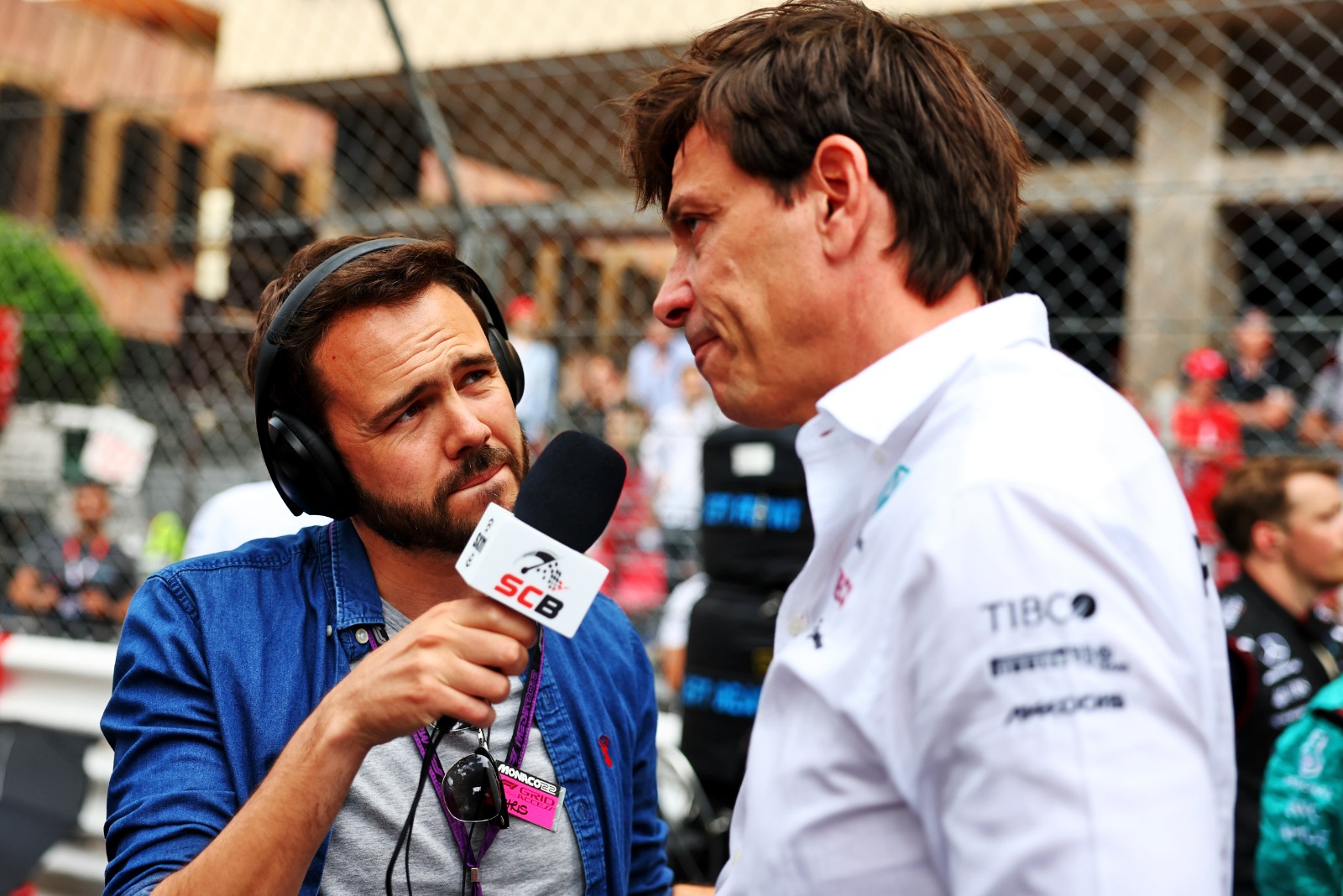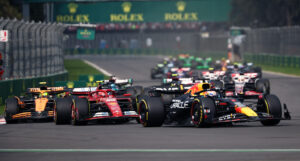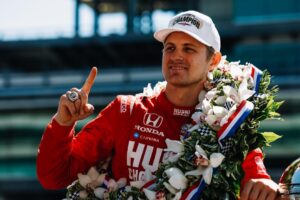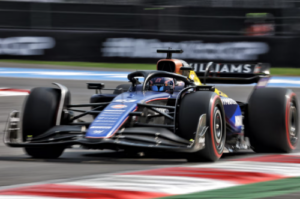F1 Journalist Chris Medland discusses the drama that emerged during the summer break, the Belgian GP, and much more.
Nicknamed the ‘Fabrizio Romano of F1’ Chris Medland has established himself as one of the most renowned journalists of our time. Before Medland set off for the Belgian Grand Prix, I had the opportunity to discuss with him the chaotic summer break, his take on Alonso moving to Aston Martin and, of course, the infamous Abu Dhabi Grand Prix.
BREAKING: Daniel Ricciardo will leave McLaren at the end of this season #F1
— Chris Medland (@ChrisMedlandF1) August 24, 2022
Fatima: Thanks for taking the time to speak with us ahead of the triple-header coming up. Is preparation more intense when there is a triple header?
Medland: It is in some way. I travel home in between each race as much as I can because I have a much better half that I’d like to see. And we have a dog together that I need to look after and I quite like my home. So as much as I love being at races, I don’t mind coming home either. Some people can stay out. And I used to stay out a bit more in between races. Weirdly, when you’re staying out between rounds it feels like a much longer period. You kind of don’t have the start and end of each race weekend. You have the start of the triple header at the end of the triple header. So by actually coming home a lot, it kind of helps me reset in between each race and kind of breaks them up into individual race weekends. And I find that makes them a bit easier to manage because, from a new perspective, it’s a little more simple. You’ve got a lot more content to work with, and you only have a three-day gap in between races that you need to use it all.
Fatima: It’s been a busy summer break, such as the Alpine-Piastri case, is it difficult to switch off during the summer break with everything that was going on?
Medland: At first it was very difficult. I had my first proper summer holiday booked for about five years this summer, which I think a lot of people would have done after COVID. So it was meant to be a two-week holiday, including a NASCAR race in the US where Kimi Raikkonen was racing but that fell through. I ended up away on holiday for two and a half weeks. But as a freelancer that meant I spent most of the few weeks before the holiday trying to do two and a half weeks’ worth of work in advance to then make sure I could send it to everyone. They had everything they needed from me, which was a lot. Then Monday happened when I got back from Budapest early that morning and went down to my parent’s place to drop my dog off that evening. It was all going off with Alpine, Aston Martin, and Piastri. And you just have to stop what you’re doing. You don’t get to talk to people too much. It meant that when we went away on holiday, it was still rumbling on. So I had a number of phone calls I had to do where different team principals are speaking and just stuff you can’t really ignore. You need to stay on top of it.
Fatima: I saw a picture of Abu Dhabi in 2012 when you were interviewing Lewis just before he signed for Mercedes. Everyone was convinced it was a career-ending move. But then the regulations happened. Do you think that Alonso moving to Aston Martin is a career-ending move now?
Medland: No, I don’t think so. I can see where the comparison might come in, but I think if you look at where Alpine are and how little progress to the front they’ve made this year. They’ve improved, but just they haven’t jumped into the top three. I don’t think that’s a team that’s going to be winning races in the next 2 to 3 years, certainly not five championships in that window. And so I don’t think Alonso is really leaving anything that would change his career behind, if that makes sense. So he might be making a sideways move. It might even be if Aston Martin have another year like this year, next year, then it might be a back slightly backwards move. But the amount of investment they’re making, the amount of money essentially they’ve got, the new factory they’re building, the commitment that Aston Martin has shown. It’s a completely different business model to Alpine’s because they don’t have a multibillionaire behind them. So I think if there’s a chance a team is going to make a big step forward quickly, it is Aston Martin. It’s not guaranteed by any stretch. And as we’ve seen this year, it’s very difficult to do. But I think he’s kind of gambled on it, and it might come good and I’ll look like a hero.
Fatima: You like the mid-race tweet. So when you’re watching the races, are you watching purely as a journalist, or how much is it as a fan?
Medland: Well, I’m I’m definitely a fan. But you’re right, your thought process is 100% as a journalist. It’s what’s happening and why is it important and what am I going to need to do as a result of it? So the bit I always kind of remind fans about is when it comes to the race finishing and most people sort of watch the celebrations and the podium and maybe through driver interviews and then they turn their TV off or go and do something else with their day. That’s when our hard work starts as written press. So I do about an hour-long live radio show after the race, but then I have to gather interviews. Then I have to write all the reactions, write a report, and write features. So you work for about 5 to 6 hours after the race before you leave the circuit. When TV crews just turn off their cameras and pack up or go home, I’m always quite jealous of that. But because of all that work that comes afterwards, it means during the race you’re really focusing on, what might I need to do and who might I need to speak to after the race or why is that going to be a talking point? So you are always thinking about the impact it has on your work. But at the same time, if a race is good or boring, we get I get the same feelings as anyone just watching purely as a fan, I’m still very much a fan.
Fatima: So, Abu Dhabi, last year, watching that a bit of a fan, the emotions behind it. How was it? Was it difficult to control your emotions when writing an objective journalist piece?
Medland: It was, because you worried that maybe you were misreading the situation first. On the night itself you could see that [it] just didn’t seem right. But I was leaving the TV pen and doing interviews for a middle Eastern TV channel that I used to work for until the end of last year. I stood next to the Dutch media company Ziggo before hand, and they were in despair that they thought this championship was all over. And I was even saying to them, I was like, I just feel like something’s going to happen. But this season feels like it can’t end that way or won’t in that way. It’s just been too ridiculous and crazy and dramatic for it to then finish in a boring fashion. That was before the safety car. So when the safety car happened, that was my point of safety. That was always going to be something. But then when it finished, and of course, there’s it all happened so quickly, really. You very quickly had the message from race control, the restart, and the final lap. It’s all done. And you’re trying to process all that and kind of go, okay, so Max is a champion, but was that correct? But when you’re in the TV pen, you don’t have access to all the documents. You need to go trawling through the regulations.
Is that allowed or not? So then you’re kind of asking that question of people and some drivers are saying No, didn’t seem quite right. Others are like, Yes, it’s fine. Mercedes are saying it’s definitely not Red Bull is saying it definitely is. So then you’re kind of going, I need to do some more research now. Basically, I need to look for precedents, to go through every detail of every regulation, because while it might say one thing in one clause, it might say something else in another that allows it to happen. So you just step back a little bit and don’t get overly involved and have to kind of calmly look at all of the information you can get. But that took a lot of time because you’re trying to do that at the same time as covering the end of the final race of the season, Kimi retiring, the fight for third in the championship with Ferrari and McLaren. Then where had Alpine finished, Alphatauri had been trying to overtake someone, etc. There are always storylines. So when a driver appeared in front of you, you need to think about what actually happened with their race rather than just the title battle. So that meant it took quite a while. And then you sit down and at the end of the night to try and write an article – there’s a lot that goes into it.
With nine races left of the season, there is still plenty of drama left to develop before the summer break. Thanks to Chris for taking the time to talk with Last Word on Sports – Motorsport ahead of the Belgian Grand Prix.






